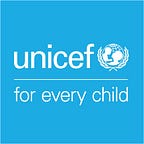Reaching those in need
As fighting displaces families in South Sudan’s Upper Nile State, UNICEF works to deliver life-saving care and supplies.
Straddling a dry riverbed, the village of Aburoc has seen the arrival of thousands of people displaced by fighting. Gathering under trees offering little escape from the brutal heat, many have no shelter and sleep in the open. UNICEF and the World Food Programme deployed a joint Rapid Response Mechanism mission in May 2017 to deliver food, water and sanitation supplies and provide health services.
A displaced boy stretches on the plot where he sleeps in the open in Aburoc. Most of the displaced are children and women, many of whom were forced to walk hours before reaching Aburoc.
Fleeing their homes without any personal belongings, the displaced have little choice but to camp under trees and sleep in the open. The few basic pots and containers they have for cooking were distributed by humanitarian organizations.
People draw water from a borehole, one of six boreholes and wells in the area. The huge influx of people is straining water supplies and an ongoing cholera outbreak makes it more urgent than ever for humanitarian organizations to ensure access to safe drinking water.
Families have been surviving on the little food they can scrape together, mostly eating lalop fruits and leaves. Such poor diets have put many children under the age of five at risk of becoming malnourished.
Women queue to be registered by the Rapid Response Mechanism staff, enabling them to access food aid, health services, including vaccinations for children and pregnant mothers, and essential non-food items. In all, 17,000 people registered in Aburoc in May 2017.
Widespread Insecurity in remote areas such as Aburoc means roads are inaccessible and supplies must be flown in. The joint Rapid Response Mechanism responds to critical gaps in humanitarian coverage for affected populations in hard-to-reach locations.
Emergency life-saving supplies, such as mosquito nets, soap, water purification tablets and collapsible jerry-cans were distributed to over 5,000 households during the mission. As of May 2017, 1.97 million South Sudanese were internally displaced.
Displacement brings with it an increased risk of illness. The UNICEF team screened children for malnutrition and provided vitamin A supplements and rations of ready-to-use therapeutic food.
With routine immunization and other health services disrupted by the conflict and displacement, UNICEF staff administered polio and measles vaccines to children. Vaccines keep children alive and healthy by protecting them against disease.
Children play chess at a Child Friendly Space. Almost 50 per cent of the displaced in Aburoc are children, most having experienced multiple displacements in the past months, living in the bush and makeshift camps, exposing them to an increased risk of sexual violence and forced recruitment.
A dust storm hampers the work of a UNICEF child protection team registering missing and separated children for family tracing and reunification purposes. More than 120 children were reported missing in just one week in May.
With the aid of a flashlight, UNICEF nutritionist Selina Ayangi tallies the number of consultations performed on the third day of the mission. Staff working on missions in remote locations do not have access to basic services such as electricity and camp out.
People begin to queue for a distribution of monthly food rations by the World Food Programme. An estimated 5.5 million people are food insecure in South Sudan, with malnutrition at critical levels in much of the country.
People watch as sacks of sorghum are airdropped by a World Food Programme aircraft in Aburoc. In all, 180 tons of food aid were airdropped.
Women divide up sacks of sorghum during a food distribution. For many, this is the first food aid they have received since fleeing their homes.
With the start of the rainy season, people are forced to construct makeshift tents from the tarpaulins some have received, others still have only the trees for shelter.
The rains make life even more difficult for the thousands of displaced living without shelter and further complicate access for humanitarian aid, as roads become impassable and landing strips become waterlogged.
Learn more about UNICEF’s work in South Sudan.
